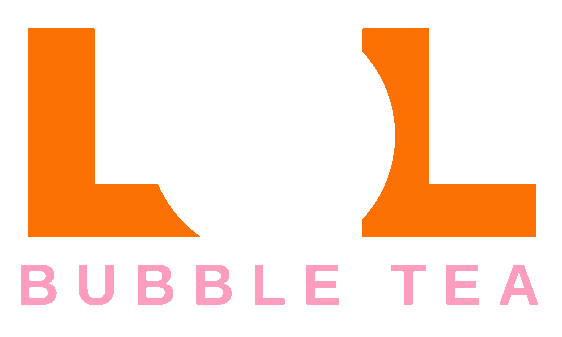Bubble tea, also known as boba tea or pearl milk tea, has taken the beverage world by storm. This delightful concoction, originating from Taiwan in the 1980s, has become a global phenomenon, cherished for its unique combination of flavors, textures, and customizable options. While many enjoy bubble tea for its sweet taste and the fun, chewy tapioca pearls (boba) that give it its name, others are concerned about its caffeine content. For those who are sensitive to caffeine or actively monitoring their intake, understanding the caffeine levels in bubble tea is crucial.
What is Bubble Tea?
Before diving into the caffeine content, let's briefly explore what bubble tea is. At its core, bubble tea consists of a tea base mixed with milk or fruit flavors, often served cold and always including the signature chewy tapioca pearls. The "bubbles" in the name originally referred to the foam created by shaking the tea mixture, though now it's commonly associated with the tapioca pearls themselves.
Does Bubble Tea Have Caffeine?
Bubble tea's caffeine content primarily depends on the type of tea base used in its preparation. Traditional bubble tea is made with a tea base, typically black or green tea, both of which naturally contain caffeine. The amount of caffeine in bubble tea can vary significantly based on:
- Type of tea: Black tea usually contains more caffeine than green tea.
- Brewing time: Longer brewing can extract more caffeine.
- Tea quality and cut: Finer cuts of tea leaves brew stronger and more caffeinated tea.
For instance, an average cup of bubble tea with a black tea base might contain between 20 to 60 milligrams of caffeine, similar to that of green tea, but potentially less than a standard cup of coffee, which typically contains around 95 milligrams per 8-ounce serving.
- Black Tea: 14-70 mg per 8 oz (240 ml)
- Green Tea: 24-45 mg per 8 oz (240 ml)
- Oolong Tea: 10-60 mg per 8 oz (240 ml)
- White Tea: 6-60 mg per 8 oz (240 ml)
It's important to note that not all bubble teas are made with a tea base. Some are simply fruit-flavored and do not contain any tea at all, making them naturally caffeine-free. These variations are ideal for those looking to avoid caffeine.
Common Bubble Tea Variations and Their Caffeine Content
- Classic Milk Tea: Made with black tea, this typically contains 30-50 mg of caffeine per 16 oz serving.
- Green Milk Tea: Usually has less caffeine than black tea versions, with approximately 25-40 mg per 16 oz serving.
- Taro Milk Tea: Often made with a non-caffeinated taro powder and may or may not include tea. If tea is included, caffeine content is similar to classic milk tea.
- Fruit Tea: Can be made with or without tea. Those made with green or black tea will contain caffeine, while purely fruit-based options are typically caffeine-free.
- Matcha Bubble Tea: Matcha is a type of green tea known for its high caffeine content. A 16 oz matcha bubble tea can contain 70-80 mg of caffeine.

Does Milk Tea Have Caffeine?
Milk tea is a popular variant of bubble tea, consisting of a tea base mixed with milk or milk alternatives. Given that the primary liquid ingredient is brewed tea, milk tea does contain caffeine. The exact amount, similar to other tea-based bubble teas, will depend on the type of tea used and how it's prepared. For example:
- Black milk tea: Typically has more caffeine due to the nature of black tea.
- Green milk tea: Contains slightly less caffeine than its black tea counterpart.
As with traditional bubble tea, the addition of milk does not affect the caffeine content significantly, though it may make the tea seem less potent due to the diluting effect of the milk.
Does Boba Tea Have Caffeine?
Boba tea is another term for bubble tea, specifically referring to the version of the drink that includes tapioca pearls, or "boba," which are starch balls derived from the cassava plant. Since boba itself does not contain any caffeine, the caffeine content in boba tea comes exclusively from the tea base used. Therefore:
- Tea-based boba tea: Contains caffeine based on the type of tea.
- Non-tea-based boba tea: Such as those made with just milk and flavored syrups, generally do not contain caffeine unless specifically added.
For those interested in enjoying boba tea without caffeine, options include fruit-flavored teas without any actual tea leaves, or simply selecting a herbal tea base like rooibos, which is naturally caffeine-free.
Can Bubble Tea Have Caffeine in It?
Absolutely, bubble tea can contain caffeine if it includes a tea base made from either black, green, or oolong tea. The caffeine content can be tailored by:
- Choosing a different tea base: Opting for herbal teas if caffeine avoidance is the goal.
- Adjusting the brewing strength: Less brewing time results in less caffeine extraction.
- Mixing bases: Some shops offer blends of caffeinated and non-caffeinated bases.
Additionally, for those who enjoy the energy boost that caffeine provides, ensuring that the bubble tea is made with a strong tea base will help achieve that effect. Conversely, selecting non-tea-based or herbal tea-based options will provide a delicious, caffeine-free alternative.
Caffeine-Free Options
For those looking to enjoy bubble tea without caffeine, many shops offer alternatives:
- Fruit-based teas without a tea base
- Some of the ready to drink bubble tea brands
- Milk-based drinks without tea (e.g., pure taro milk)
- Herbal tea bases like chamomile or peppermint






